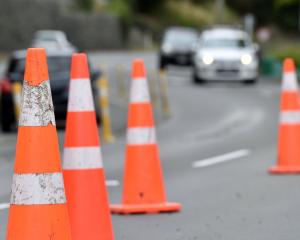A Dutch solution could well be needed for South Dunedin, writes Gill Caradoc-Davies.
The articles and maps in the ODT on November 20 and 21 about South Dunedin risks with sea-level rise made riveting and scary reading.
Even if the Paris talks exceed our wildest hopes and there is a determined and concerted international effort to combat the effects of climate change, the rate of change will be too slow for South Dunedin.
This juggernaut of rising water cannot turn round in a hurry, and the winter's floods suggest we need to start addressing the problem right now, because implementing a response might take more than a decade.
Think of the Christchurch rebuild.
Under threat are not only two or more high schools, one intermediate school, six primary schools and at least five, maybe more, child care centres, essential for returning-to-work parents.
Three sports fields and a racecourse at least are threatened directly, and four sports parks indirectly, by being on raised land likely to be confiscated for the relocation of housing or essential services.
The old CBD and the area around Andersons Bay Rd at risk of flooding have not only shops and businesses, but also banks, pharmacies, doctors' rooms and community group areas, for example.
There is no point in waiting for a governmental response. Not only would it be too little, too late, but remember: Invermay, Hillside Workshops, hospital funding and hospital kitchens.
Dunedin's needs are clearly not that important for a National Government.
We need to step up again to save our own community; intact as far as possible.
Remember how we got the CT scanner in the late 1970s? And kept neurosurgery down here?
We can do this ourselves, bit by bit in consultation with the people affected.
We can, for example, ask the Sustainable Business Network what to do about money, or we can try crowdfunding.
Whatever it takes.
We have to have the passion to see something creative happen.
The people of Dunedin might even donate services for free, as their contribution. We still work together down here.
The Dutch have been fighting inundation with ''terpen'', raised areas which we would now call polders, since 500BC.
Dykes started being used in AD800-AD1000.
Their big flood was in 1287, forming the Zuiderzee.
In 1414, they had their first windmill.
Let us learn from them.
Interestingly, their policy is that no-one should lose money because of a slow-rolling disaster.
Their wisdom is: build up a little high ground, but also give a little to the rising water.
Sacrifices have to be made.
Could Andersons Bay Inlet be reclaimed for those displaced sports fields?
At least access to the grounds could be assured.
The roads to the existing grounds are threatened.
Sand sausages are proving ineffective at holding the sea back.
The sea wall from the Esplanade is constantly needing repairs.
It could be best to allow the sea into one or both of these places, once the schools, businesses and sports spaces have been relocated, instead of constantly finding the money to repair what has been found to be ineffective.
South Dunedin could end up with an attractive lagoon, with level board walks everywhere for the elderly and disabled who live here as part of this varied community.
Some houses could be on stilts, some be floating homes, and a purpose-built community hub, with shops, banks, library, community rooms, restaurants and cafes must be a priority.
This rebuild could be ecologically friendly, with the return of wildlife to the area.
It could be built with sustainability as a goal, with solar panels and insulation and, ironically, be drier, although being on a marina of sorts.
Built with earthquake-proofing and tsunamis in mind, this could lead the rest of Dunedin into the next two decades.
If we do this right, this would be a ''must-see'' on any tourist route.
Let's get together and start. Anyone know a Dutch flooding consultant, preferably one who will offer advice for free, as a gift to this lovely place we live in?We are not hopeless or helpless.
Let's do it.
• Gill Caradoc-Davies is a retired Dunedin psychiatrist.











